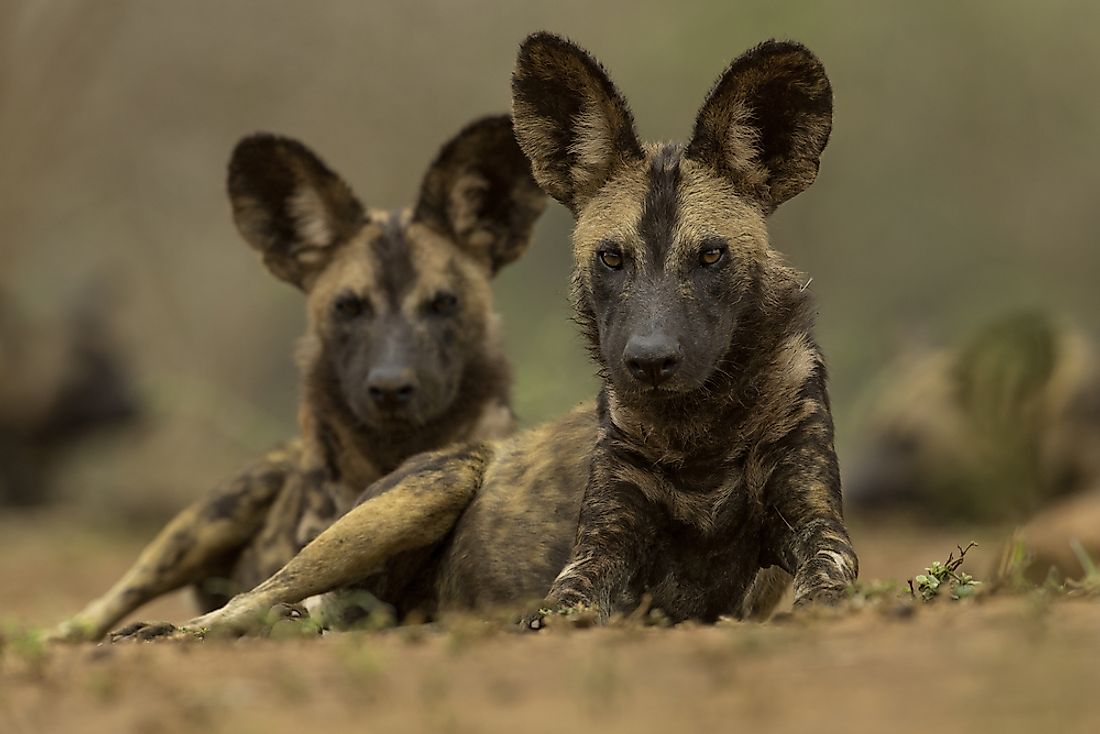Unique Facts About the African Wild Dog

The African wild dog is also known as the African painted dog or the Cape hunting dog. It is native to the sub-Saharan region of Africa. The African wild dog is an endangered carnivore of the canid family and is one of the largest and one of the most intelligent hunters in the wild. The African wild dog has a mottled coat with patterns that differ from one member to the other in color and design. The coat is covered in fur patches of diverse colors including red, black, white, brown, and yellow. Their legs are long with four toes each. Females are larger than males with an average height of about 30 inches and a weight of between 44 and 55 pounds.
Behavior Of The African Wild Dog
The African wild dog is a social and diurnal animal that lives in large packs of as many as 27 adults and also includes a group of pups, which also form hunting packs. The African wild dog lacks a specialized hierarchy, and all members live in harmony with one another within the pack. Their social nature and collaboration are seen when the animals hunt and share their catch among themselves selflessly and during attacks by larger predators such as lions and the spotted hyena. The African wild dog may be heard screaming and making a lot of noise, sometimes running around playfully with their tails held in the air. Reproduction typically occurs between the dominant male and female in the pack with about an offspring of 20 pups. The African wild dog lacks a defined breeding season. Members of the pack participate in caring for the pups; the nursing female as well as older members. Their harmony and cooperation as a species contribute to their success as hunters.
Diet And Predation Of The African wild dog
The African wild dog is highly adapted to a specialized carnivorous diet. It is an intelligent hunter that understands the behavior of its prey and attacks at the most vulnerable point. For instance, the dog will block escape routes for antelopes yet it disperses a wildebeest herd. The African wild dog also employs different methods of subduing and killing its prey depending on the size of prey and the danger posed by attacking the prey. The dog can run at speeds reaching 41 miles per hour for up to one hour in pursuit of prey. The prey is eaten so fast, and small prey is eaten entirely while the skin, head, and skeleton of larger prey are left. The pack allows young pups to eat and regurgitate food for both young and old. Major species eaten by the African wild dog include antelopes, gazelles, wildebeest, porcupine, rodents, warthog, hare, and small birds. Natural predators of the African wild dog are majorly the lion and the spotted hyena.
Habitat, Range, And Threats
The African wild dog is found mainly in the grasslands and plains of the African sub-Sahara where they have a clear view of their prey and enemies. They are found in African countries to the south of the Sahara desert belt. The African wild dog is threatened by habitat destruction and fragmentation, killing by humans, diseases from domestic animals as well as predation.











